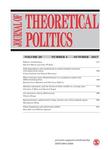版权所有:内蒙古大学图书馆 技术提供:维普资讯• 智图
内蒙古自治区呼和浩特市赛罕区大学西街235号 邮编: 010021

作者机构:Tech Univ Munich Munich Germany
出 版 物:《JOURNAL OF THEORETICAL POLITICS》 (J. Theor. Polit.)
年 卷 期:2022年第34卷第4期
页 面:527-551页
核心收录:
学科分类:0302[法学-政治学] 03[法学] 030201[法学-政治学理论]
基 金:Deutsche Forschungsgemeinschaft [BR 2312/12-1]
主 题:Social choice theory voting paradoxes integer linear programming computational social choice
摘 要:Voting paradoxes date back to the origin of social choice theory in the 18th century, when the Chevalier de Borda pointed out that plurality-then and now the most common voting rule-may elect a candidate who loses pairwise majority comparisons against every other candidate. Since then, a large number of similar, seemingly paradoxical, phenomena have been observed in the literature. As it turns out, many paradoxes only materialize under some rather contrived circumstances and require a certain number of voters and candidates. In this paper, we leverage computational optimization techniques to identify the minimal numbers of voters and candidates that are required for the most common voting paradoxes to materialize. The resulting compilation of voting paradoxes may serve as a useful reference to social choice theorists as well as an argument for the deployment of certain rules when the numbers of voters or candidates are severely restricted.